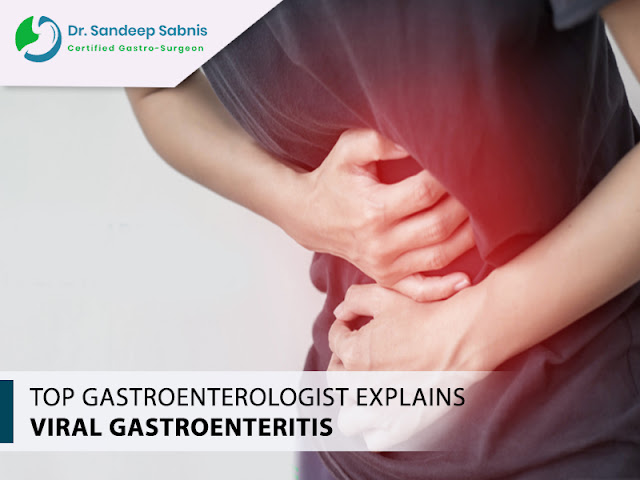Inflammatory bowel disease (IBD) is a type of disorder that causes pain and swelling along with chronic inflammation in your intestines. IBD includes ulcerative colitis and Crohn's disease. Both these types affect your digestive system. Below, a gastroenterologist in Nashik explains the types of inflammatory bowel disease and their treatments.
Types of Inflammatory bowel disease
1. Crohn's disease
According to a gastrointestinal specialist in Nashik, Crohn's disease causes swelling and pain in your digestive tract. It can affect any part between the mouth and the anus. Usually, it affects the upper part of your large intestine along with the small intestine.
2. Ulcerative colitis
Ulcerative colitis causes sores and swelling in your large intestine (rectum and colon).
Treatments for Inflammatory bowel disease
According to the best gastroenterologist in Nashik, these are the most suitable treatments for Inflammatory bowel disease.
1. Anti-inflammatory drugs
Anti-inflammatory drugs are suitable for treating ulcerative colitis. These drugs include aminosalicylates like Dipentum, Colazal, Delzicol, and Rowasa. The medication you take depends on the area of the colon that is affected.
2. Antibiotics
Antibiotics can be used with other medications as prescribed by your doctor when there is a concern about infection. Such antibiotics include metronidazole and ciprofloxacin.
● The medications that may be given to relieve your IBD symptoms are as follows.
● If you have mild pain, your doctor will recommend Tylenol and other pain relievers.
● Anti-diarrheal medications include fibre supplements that relieve mild or moderate diarrhoea.
3. Immune system suppressors
These drugs suppress the immune responses that release chemicals into your body, inducing inflammation. These chemicals can damage the lining of your digestive tract.
4. Surgery
Surgeries are recommended if the above treatments are not effective in treating IBD.
Surgery for ulcerative colitis removes your entire rectum and colon, and the production of the internal pouch attached to your anus that allows movements of bowels without any bag.
Surgery for Crohn's disease removes the damaged portion of the digestive tract and reconnects it with the healthy parts. This surgery can be used for closing drain abscesses and fistulas.
We have mentioned above the treatments for Inflammatory bowel disease. If you find blood in your stool or suffer from recurrent diarrhea, consult a top gastroenterologist to see whether you have the disease and to know which treatment will be the most suitable for you.




.jpg)
.jpg)







